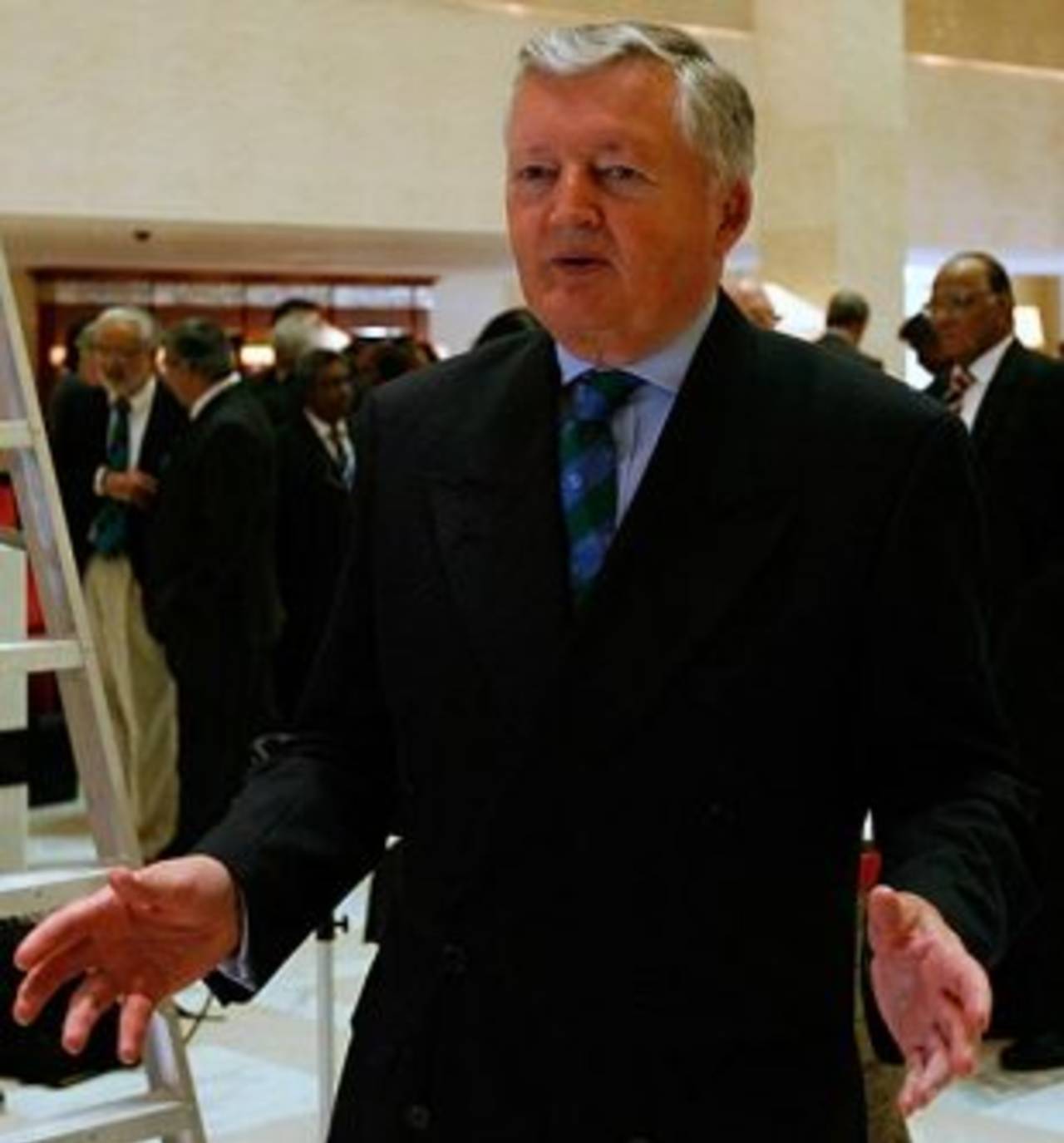The proposal to amend the ICC's constitution and do away with the rotation policy for the appointment of its president has arisen from the
rejection of John Howard for the vice-presidency last year.
Former ICC president
David Morgan told ESPNcricinfo that the rejection of Howard as the Australia-New Zealand candidate for president meant that "it was inevitable that the process for electing the president should come under review yet again." The constitutional amendment pertaining to the election of the ICC president is one of the
major decisions to be ratified by the ICC's full council at its annual conference in Hong Kong from June 26 to 30.
Morgan, who led the ICC from 2008-2010 before Sharad Pawar began his term, said that the discussions in Hong Kong would be significant in terms of the ruling body's future. To rule makers, it was important that "any change in the system for electing the president ensures that the best available person actually becomes president." Morgan was, however, opposed to the idea of a permanent or open-ended term for the president, as opposed to the current two-year term. "I have heard rumours of a new system involving unlimited or timeless terms of office for the president and believe that that would not be good.
Among the new proposals to be discussed in Hong Kong, is to grant authority to ICC's 16-member Executive Board (made up of the ICC president, vice-president and the chief executive, 10 full member board presidents, three Associate member representative) to "discuss the process and term of office (of President) from time to time." As of now, none of the ICC three representatives on the Board, though its 'directors' do not have a vote. Voting powers resting mostly in the hands of the 10 full member nations, who need a two thirds majority - seven out of ten - to pass a decision.
Of the meeting, Morgan said, "Annual conference week is the one time in the year where the large part of the ICC's membership comes together. It is the event which sees the top Associate members standing shoulder to shoulder with representatives of the Test-playing countries."
In the 2011 annual conference, the Associates will discover whether they will have
any chance to compete for a place in the 2015 World Cup, which is one of the key issues to be discussed in Hong Kong. Morgan said that along with the presidency and Associates' role in several matters, the decision over the Decision Review System would be an important part of the decision making in Hong Kong.
"The DRS is hailed as a huge success around the world and it can't be held back." Morgan said that other than the "significant increase in correct umpiring decisions, one of the great benefits of DRS is that it has quite clearly improved player behaviour."
Morgan also said that the ICC itself also needed to modernise its corporate governance, a subject that he had written about in last year's Annual Report. "I continue to hold that view. In most countries of the world, boards of companies have to operate in accordance with certain principles that amount to good corporate governance. I have no doubt that the ICC will not delay in addressing this important issue."
